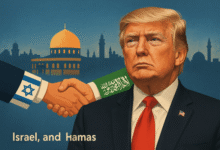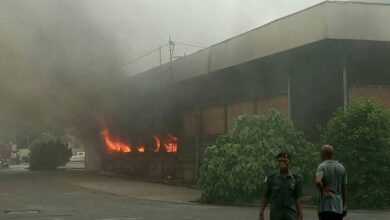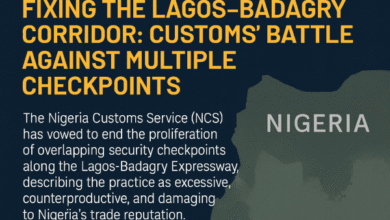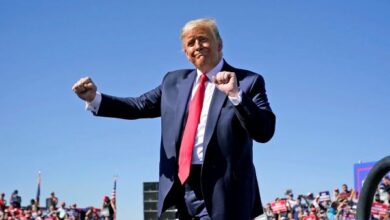By Peter Apps
LONDON (Reuters) – NATO says tens of thousands of Russian troops are massed on the border with Ukraine for a potential invasion, yet Western states still lack a strategy to stop Moscow from intervening in its former Soviet neighbors.
With military action to protect non-NATO states effectively ruled out, current and former officials say sanctions and isolation provide the best – and perhaps only – way to pressure Moscow. Ramping up the pressure on the rich and powerful around President Vladimir Putin, they say, might in time push him towards a much more conciliatory approach.
But that, they concede, could prove a long game, and some both in and outside government worry that a more isolated Russia may simply become both more nationalist and self-sufficient. Putting Putin under more pressure, they worry, may give him even more incentive to take a populist, more aggressive approach.
Ultimately, Moscow’s commitment to rebuild the former USSR as its own unilateral sphere of influence may outstrip the determination of Washington and its European allies to stop it.
Experts say Moscow has been infiltrating its neighbors ever more deeply, building its influence amongst security forces, government officials and politicians. That, some say, allows it to stir up instability in locations like eastern Ukraine and create both confusion and potential preconditions to invade.
“What we’re seeing here is a new form of warfare and part of a concerted strategy,” said Chris Donnelly, a former senior adviser to NATO on Russia and now director of the Institute for Statecraft in London. “Either we stand up to it or we let it happen. So far the response has been totally inadequate.”
With Russia’s annexation of Ukraine’s Crimea peninsula now largely seen an irreversible fait accompli, many now see more confrontation over the years to come.
In a March 18 speech following the Crimea intervention, Putin made it clear he would be willing to use force to safeguard the interests of Russian-speaking minorities.
The breakup of the USSR left some 25 million ethnic Russians outside the borders of the Russian Federation, concentrated in places like Ukraine, Kazakhstan, Central Asian and Baltic states and breakaway enclaves in Georgia and Moldova.
Tens of millions more – classified in their old Soviet passports as ethnic Ukrainians, Belarussians or others – speak Russian as their first language.
There may be little Western states can do to stop Moscow reabsorbing into the Russian Federation three breakaway statelets its military already occupies – Moldova’s Transdniestria region and Georgia’s South Ossetia and Abkhazia.
Nor is there political will to stop Russia going further if truly determined to do so. The only true red line, some say, is that attacking the NATO member Baltic states would trigger NATO’s self defense clause and a wider war with the alliance and its nuclear super power the United States.
“LITTLE WEST CAN DO”
“We are in new territory,” said one Western official on condition of anonymity. “Realistically there is little the West can do to prevent Putin invading Ukraine or other non-NATO former Soviet states except for applying diplomatic and economic pressure. The priority now is to deter any aggression against NATO.”
The strongest message western states could send to Moscow, some experts suggest, is that for every move Russia takes to entrench its position in the areas it can control, the closer other countries near its orbit will move to the West.
That would mean greater economic support, possibly moves towards EU accession for European ex-Soviet states like Ukraine, Georgia and Moldova, and perhaps new energy and economic deals with Central Asia.
On Wednesday, Reuters reported that Kazakhstan – a reliable Russian ally that has publicly supported Moscow’s actions in Ukraine – is seeking alternative export routes for its oil if sanctions on Russia are tightened.
Building up and supporting such states to make them more resilient to Russian influence, however, is dependent on those governments themselves finding stability. With Ukraine still mired in political crisis and Russian influence growing across the ex-Soviet Union that could prove overly optimistic.
Further Russian action would probably wreck an informal agreement not to base significant US or Western European military forces in former Soviet-dominated Eastern Europe, particularly the three tiny Baltic states, the only parts of NATO and the EU that were directly ruled by Moscow.
Moscow has long complained the West went back on a pledge not to push the boundaries of NATO and the EU to Russian’s border. Now it could see NATO troops permanently based there.
The U.S.S. Donald Cook, a guided missile destroyer, entered the Black Sea on Thursday to participate in exercises “to reassure NATO allies”. A French intelligence vessel was also due to pass through the Bosphorus.
But so far, economic pressure has been the only real weapon in the Western arsenal, and its effectiveness as a deterrent is difficult to assess.
Sanctions imposed on a few dozen Russian figures by the United States and Europe over Crimea have been explicitly designed not to have wide ranging economic consequences.
Both Washington and Brussels have threatened much tougher measures if Russian troops move into other parts of Ukraine. That risk has accelerated capital flight from Russia, hurting its economy, but only indirectly.
So far, Putin has not sent troops in. But no one apart from the Kremlin leader himself can say for certain whether he has held back because of the threat to Russian prosperity from sanctions, or for other reasons.
Western states have been unwilling to define in detail what tougher sanctions would mean. That, some say, reduces the impact of the threat. Suggested steps, such as wide-ranging asset freezes or moves to wean Europe off Russian gas, would hurt Western states as well as Moscow.
TOUGH WINTERS COMING?
Targeting Russian investors more widely as well as Putin’s personal wealth and cancelling French export deals for two helicopter carriers could also be on the table, officials say. Such moves, however, would cost jobs as well as potentially undermining financial markets and real estate prices.
Still, supporters say tough sanctions have proved effective against Iran, bringing it to the table on nuclear issues.
“This is a timely wake-up call,” said Michael Leigh, former deputy head of external relations for the European Commission and now senior adviser to the German Marshall Fund. “With the West scarcely responding to Crimea, Putin may feel he has nothing to lose for further annexation.
“A couple of tough winters is a price worth paying.”
A Russian move into eastern Ukraine would almost certainly spark at least limited military conflict between Russia and Ukraine. How the West would react to that is currently very far from clear.
In Washington, President Barack Obama faces calls to arm Ukraine and step up training and other military links. But there is little real enthusiasm for direct involvement, much less a nuclear face-off with Moscow.
If a Russian invasion did spark a messy insurgency, the West might find itself gradually dragged into providing at least some covert support to Kiev or any other Western-leaning government in a similar position. But it would almost certainly remain extremely limited.
On April 1, NATO announced what it called “concrete measures” to boost Ukraine’s ability to defend itself. In reality, however, these appeared limited to ill-defined “capacity building” measures and boosting the size of NATO’s liaison office in the capital.
“It’s not that the West couldn’t stop it – a couple of brigades of NATO troops would almost certainly deter an invasion,” says Dmitri Gorenburg, Russia analyst at the Centre for Naval Analyses, a U.S. government-funded body that advises the military. “But that isn’t going to happen. When it comes to pushing back Russia’s actions in the former Soviet Union, there is no strategy and there is no appetite.”
(Reporting by Peter Apps; Editing by Peter Graff)












